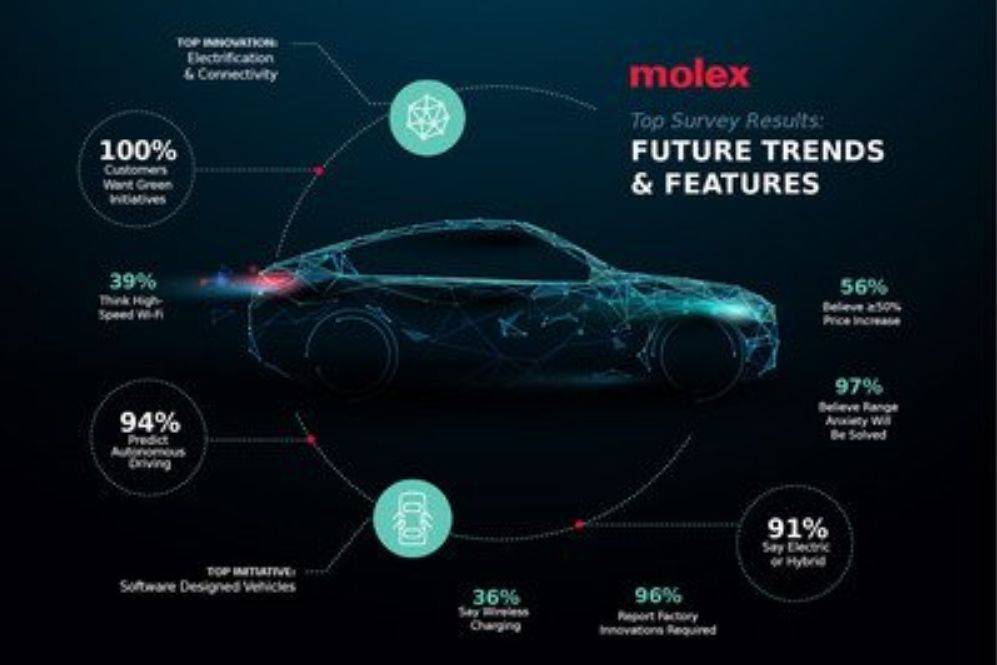Molex released the results of the Future Car global automotive survey
Molex, a leading connectivity and electronics solutions provider, has released the results of a global survey of automotive decision makers that describes the key trends and technologies influencing strategic and business decisions on the "car of the Future." The findings confirm the critical role of data, software and networks in enabling electrification and connectivity, which are considered two of the most important areas for innovation.
"This is an exciting time for the automotive industry, and this survey underscores the accelerating pace of investment and innovation," said Mike Bloomgren, Molex's senior vice president of Transportation and Industrial Solutions. "The results also reinforce our mission to design and deliver key electronic solutions that form the central nervous system of the connected car of the future."

Molex commissioned Dimensional Research to conduct a survey on the Future of Cars in November 2020, which surveyed 230 participants in engineering, product, procurement, R&D, supply chain, innovation, or strategy in automotive companies with at least 1,000 employees. Respondents were asked questions designed to help them visualize the average appearance of a typical new car purchased in 2030, including major features, initiatives and innovations.
Key findings include:
1. 91% of respondents said the car would be all-electric (64%) or hybrid (27%)
2. 97% expect range anxiety to be resolved by 2030
3. 94% expect self-driving cars to be included; Only 28 percent envision fully autonomous cars
4. 56 percent think cars in 2030 will be at least 50 percent more expensive than cars today
When asked to identify the areas of the overall ecosystem that are most likely to reduce the price of 2030 cars, battery cost savings (40%), software integration (34%) and manufacturing processes (32%) dominate. In addition, 96 percent believe that the cars of the future will require innovation in manufacturing plants.
According to the survey of respondents, the top three features most likely to become standard by 2030 are high-speed WiFi, wireless charging and vehicle-to-vehicle communication. Asked to pick the top five areas of innovation for the next decade, respondents picked electrification (38%), connectivity (33%), passenger safety (29%), quality and reliability (28%), and software-defined infrastructure (27%).
In addition, 60 percent of those surveyed identified the ability to enable innovation through software as a priority, including the intelligence needed for autonomous driving, advanced algorithms to reduce energy consumption, remote updates of new features and customized driving experiences.
Click to view comments
According to participants, customer demand and technological innovation will influence the development of future vehicles, especially in accelerating green or socially responsible initiatives, including from zero-emission vehicles to zero-waste production.
While 44 per cent of survey respondents envisage the development of the average car bought in 2030 being driven by established carmakers, 32 per cent see an increasing drive from tech companies. Companies such as Apple, Google and Microsoft are expected to gain momentum because of their expertise in user experience and human-machine interfaces. Just as important, industry insiders believe China is most likely to build the cars of the future first, followed by the US, Japan and Germany.
An overwhelming majority of respondents said there were major technical challenges in enabling innovation, with 44 percent citing inadequate battery life and 36 percent citing obstacles to the operation of electronic devices and software in extreme cases. In addition, 33 percent of respondents said they faced challenges when it was difficult to acquire expertise in electrification, 5G, security and other needed technologies.